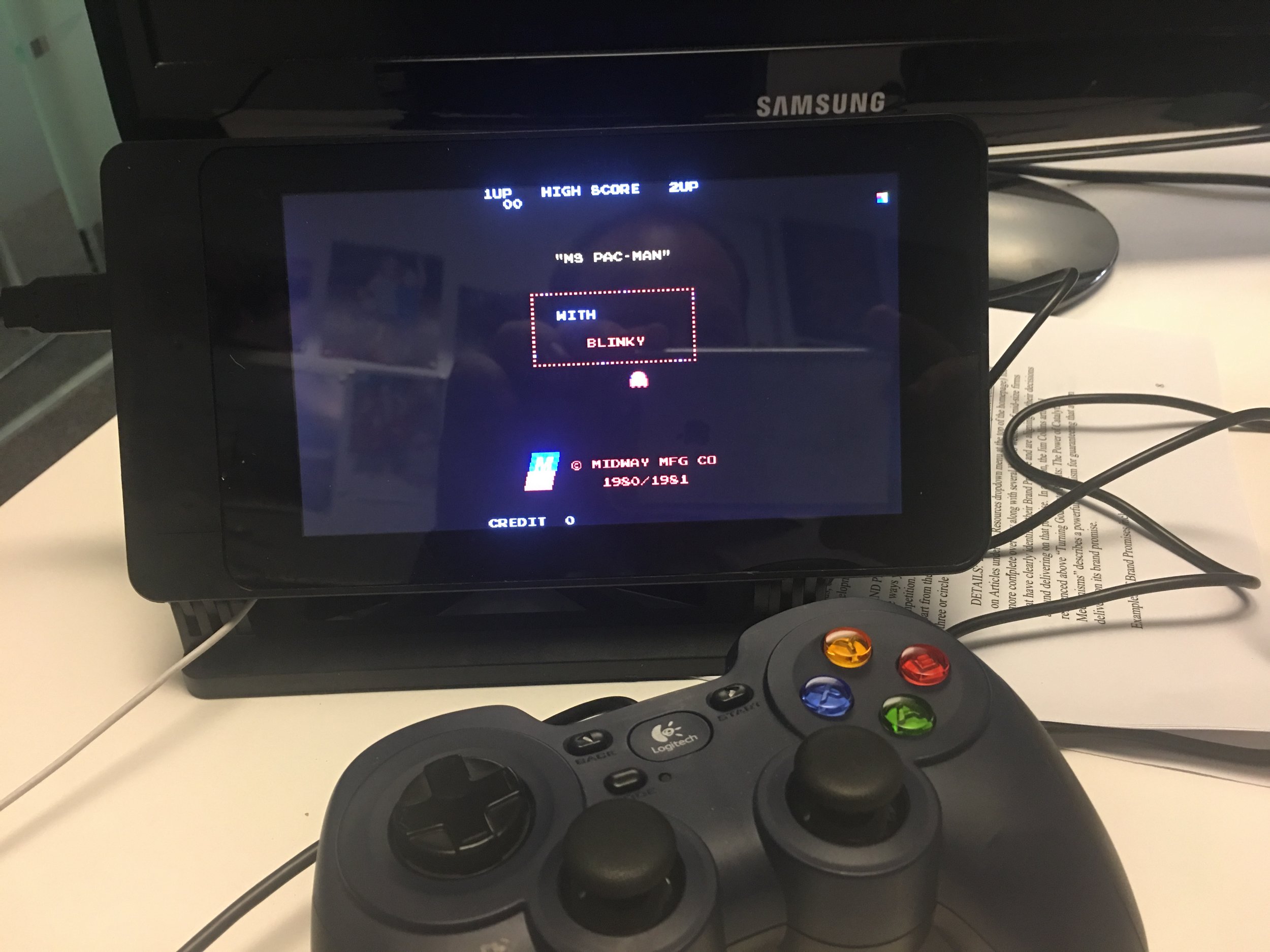What the Hell Is This?
/Call it a creative outlet for some fun stories, expressed through the lens of video game culture.
From the late 1970s all the way through the present, I’ve been a video gamer. Over the years, I’ve come to understand that if you were someone who came of age in the 1980s, the experience of video gaming being at the forefront of many of the events of your formative years was an experience a lot less rare than I had initially thought. People of that era have experiences connected to video games even if they never considered themselves a video game enthusiast. Games were so ingrained in pop culture that it would be impossible for someone born to a middle class family in the U.S. in 1972 to not have some stories connected with a standup arcade game, or their first console, or their neighborhood arcade.
A few things happened to me in the past few years that got me to look at video games in a whole new way.
The first was an experiment I conducted with a Raspberry Pi. The Pi was something that I experimented with in connection with my career, but then morphed into a sort of blank canvas for computer project ideas. For those unfamiliar, the Pi is a small computer, the latest version of which costs about $35 and can do many of the things your desktop computer can. In 2016, I discovered RetroPie, which is a project dedicated to turning your Raspberry Pi into a retro gaming machine.
Before long, RetroPie put almost all of the console and arcade games of my youth onto a microSD card, and I was able to play all these games again on my TV with a USB controller, running on a small computer about the size of a pack of cigarettes. Most of them were perfectly emulated, running the original game ROMs with all their little quirks and bugs still intact.
One of the Raspberry Pi-based arcade machines I made. I sometimes carry this one in my backpack for my long commute. You know you wanna play Ms. Pac Man.
Seeing some of these old games for the first time in decades brought back memories, and it made me realize how many stories I had that were about video games. In many ways, RetroPie reminded me of how much of my youth was attached in some way to video games, and simply poring through the library of game ROMs I’ve amassed is like a stroll through a storybook.
The second thing to happen to me was Bill Coffin’s Moments of Truth. Bill is a great friend with much shared DNA when it comes to geek culture in general. With Moments of Truth, Bill showed me that a talented writer could talk about his favorite moments in movies in a way that revealed a more universal sense of truth. In many ways, Bill is able to zero in on what gives some of his favorite movies their true appeal, and then he celebrates that appeal right along with his readers. Enjoying his blog was one of the things that gave me the idea to write this one. (“Hey, maybe I can do a similar thing with video games.”)
The third thing was that I recently tidied up my home office. In doing so, I had to tackle organizing my bookshelves. I have an unhealthy attachment to books, and I like to keep physical copies of what I’d consider important books very close to me.
In organizing my home library, I found that I had lost a book that was very important to me. It was David Bennahum’s Extra Life: Coming of Age in Cyberspace. Its dust jacket was found behind one of my bookcases, but the book itself was missing. (I’ve since ordered another copy on Amazon.)
Extra Life was important to me for many reasons, but probably the most important one was that it told a story about growing up that was very similar to mine, and it made me realize that my digital upbringing, characterized by dinking around with various makes and models of computers and consoles, was perhaps not as unique as I had once thought. In fact, the author describes exploring mainframes much like the DEC mainframe I first used in school to learn how to program.
One of the things Extra Life taught me was that there could be mass appeal to geek culture. Its subject matter touched me in much the same way that many people today describe being touched by Ready Player One. (As I type this, Ready Player One is two months away from its movie release. I can’t wait to see it, but I’d rather see a movie adaptation of Extra Life, to be perfectly honest.)
When I say “mass appeal,” I’m not entertaining any notions of the material in this blog becoming some sort of major sensation. Really, this is all about getting some stories out of my head and into a format that someone else can enjoy. But what I really mean is that as these stories developed over the years, I thought their appeal was unique to me. The three things I’ve described above, though, made me think “Hmm… Maybe someone else will enjoy them.”
I will greatly enjoy getting them out of my headspace. Hopefully, you’ll get some pleasure out of reading them.


